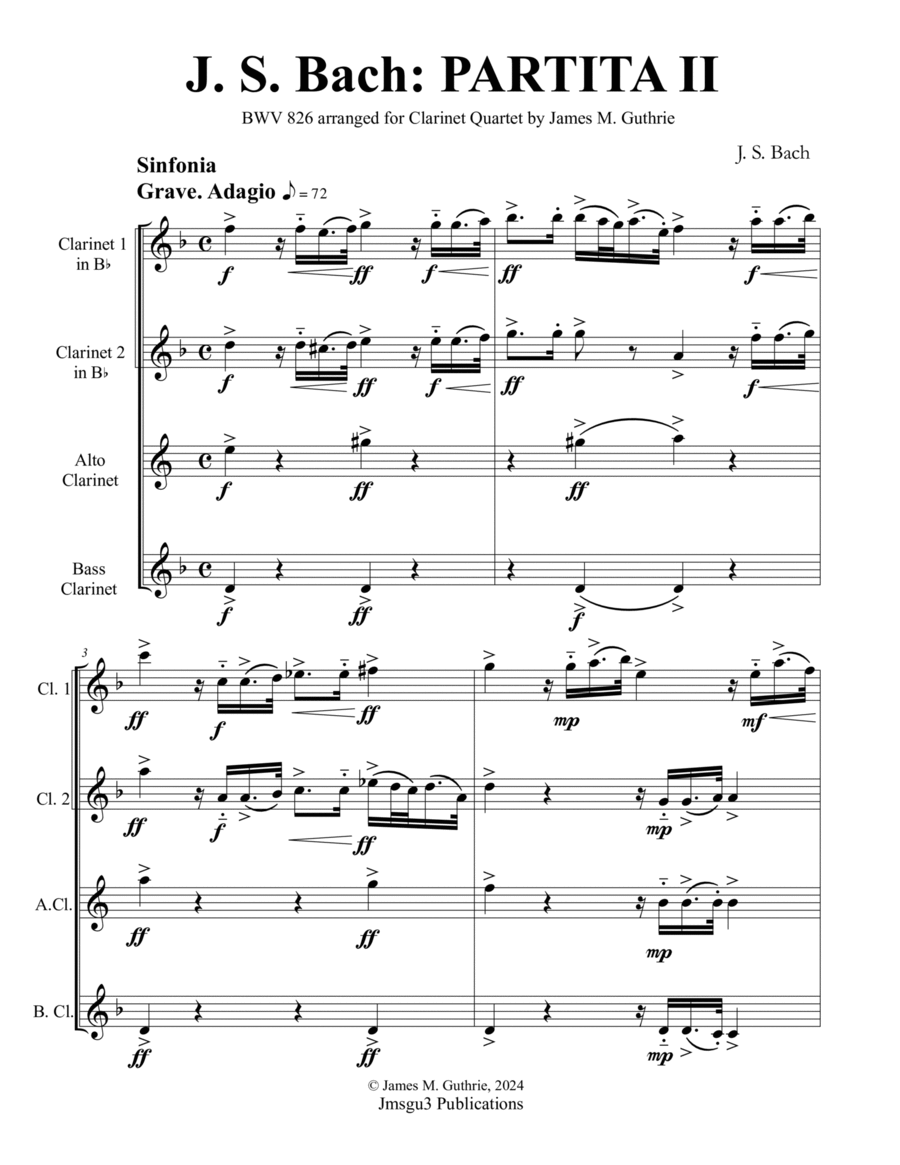Clarinet Quartet,Woodwind Ensemble Bass Clarinet,E-Flat Clarinet - Level 4 - Digital Download SKU: A0.1435859 Composed by Johann Sebastian Bach. Arranged by James M. Guthrie. Baroque,Chamber,Contest,Festival,Historic,Standards. 75 pages. Jmsgu3 #1015958. Published by jmsgu3 (A0.1435859). BACH: Partita No. 2 BWV 826 Contents: Sinfonia, Allemande, Courante, Sarabande, Rondeau, Capriccio. Bach's Partita No. 2 in C minor, BWV 826, is an essential work for several reasons: Significance in Bach's Oeuvre It is part of Bach's monumental collection of six partitas (suites) for the keyboard, considered among music history's most famous and challenging suites. The partitas were published as Bach's Opus 1 in 1731, showcasing the diversity of forms and ingenious counterpoint in his keyboard writing. Partita No. 2 was one of the earliest partitas to be published individually in 1727, highlighting its significance. Musical Characteristics It opens with a grand Sinfonia movement akin to a French overture, followed by an expressive Andante aria-like movement. The fugue movement has an intense subject spanning a minor 9th interval. It includes a double (ornamented variation) of the traditional Sarabande dance movement. The final Capriccio movement is a virtuosic and contrapuntal concerto-like piece testing the performer's technical prowess. Overall, the partita exhibits a weighty, substantial, and momentous character compared to the first. Influence and Legacy It expanded keyboard suites' technical and musical boundaries and other partitas. Due to its artistic merit and challenges, it has remained a pinnacle of the keyboard repertoire, studied and performed by generations of musicians. In summary, Bach's Partita No. 2 is a significant work that exemplifies the composer's mastery of counterpoint, variation forms, and virtuosic keyboard writing, solidifying the partitas' enduring importance in the canon of Western classical music.
